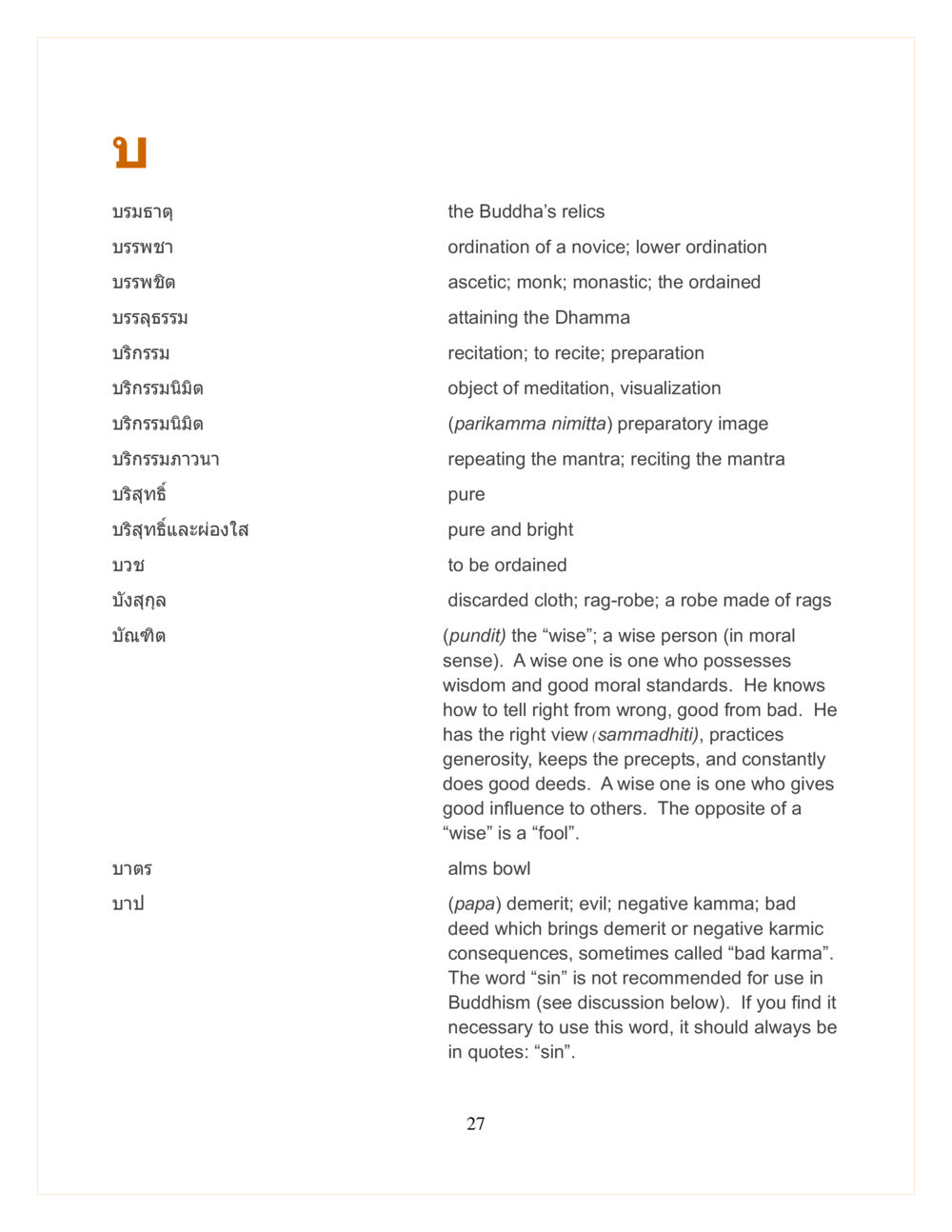คำศัพท์ในพระพุทธศาสนา : หน้า 27/115
DMC Translor’s handbook : หน้า 27/115 รวบรวมคำศัพท์ที่สำคัญในพระพุทธศาสนาและวรรณกรรมที่เกี่ยวข้อง.
0 ครั้ง

สรุปเนื้อหา
บทที่สำคัญเกี่ยวกับคำศัพท์ในพระพุทธศาสนา รวมถึงแง่มุมต่าง ๆ เช่น บรรพชา ซึ่งหมายถึงการบวชเป็นพระภิกษุ และบัณฑิตซึ่งหมายถึงผู้ที่มีความรู้และความเข้าใจในศีลธรรม นอกจากนี้ยังมีความหมายของบาป ซึ่งบ่งบอกถึงกรรมเชิงลบในพระพุทธศาสนา โดยมีการสำรวจถึงการใช้คำเหล่านี้ให้อยู่ในบริบททางพระธรรม. คุณสามารถสำรวจรายละเอียดเพิ่มเติมได้ที่ dmc.tv.
หัวข้อประเด็น
-คำศัพท์ทางพระพุทธศาสนา
-การบวชและบรรพชา
-คุณธรรมและบัณฑิต
-กรรมและบาปในพระพุทธศาสนา
ข้อความต้นฉบับในหน้า
บ the Buddha’s relics
บรรพชา ordination of a novice; lower ordination
บรรพชิด ascetic; monk; monastic; the ordained
บรรจธรรม attaining the Dhamma
บริการ recitation; to recite; preparation
บริการนิมิต object of meditation, visualization
บรรกรรมมินิด (parikamma nimitta) preparatory image
บารีกวน duplicate repeating the mantra; reciting the mantra
บริสุทธิ์ pure
บริสุทธิ์และผ่องใส pure and bright
บวช to be ordained
บังสกุล discarded cloth; rag-robe; a robe made of rags
บัณฑิต (pundit) the “wise”; a wise person (in moral sense). A wise one is one who possesses wisdom and good moral standards. He knows how to tell right from wrong, good from bad. He has the right view (sammadhti), practices generosity, keeps the precepts, and constantly does good deeds. A wise one is one who gives good influence to others. The opposite of a “wise” is a “fool”.
บาดร alms bowl
บาป (papa) demerit; evil; negative kamma; bad deed which brings demerit or negative karmic consequences, sometimes called “bad karma”. The word “sin” is not recommended for use in Buddhism (see discussion below). If you find it necessary to use this word, it should always be in quotes: “sin”.
หน้าหนังสือทั้งหมด
หนังสือที่เกี่ยวข้อง
Load More



















































































































